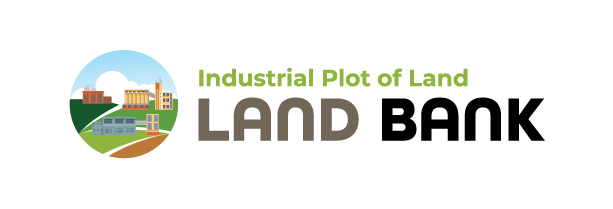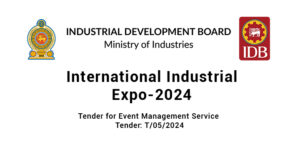
-

Registration for Innovation Arena
-

Are you also interested in becoming a government certified entrepreneurship development consultant trainer?
-
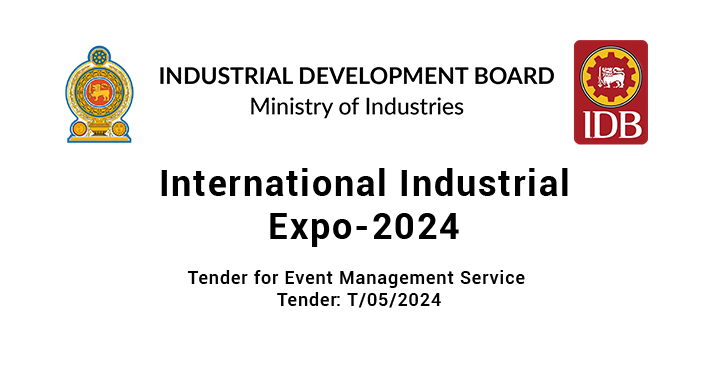
Tender for Event Management Service for International Industrial Expo-2024
-

RAK – SRI LANKA BUSINESS FORUM & TRADE FAIR 2024
-

National Industry Brand Excellence – 2024
-

RAK – Sri Lanka
-

Sri Lanka Pavilion at CISMEF 2024 in China
-

Are you also interested in becoming a government certified entrepreneurship development consultant trainer?
-

Signing of MoU between Industrial Development Board and Tertiary and Vocational Education Commission
-
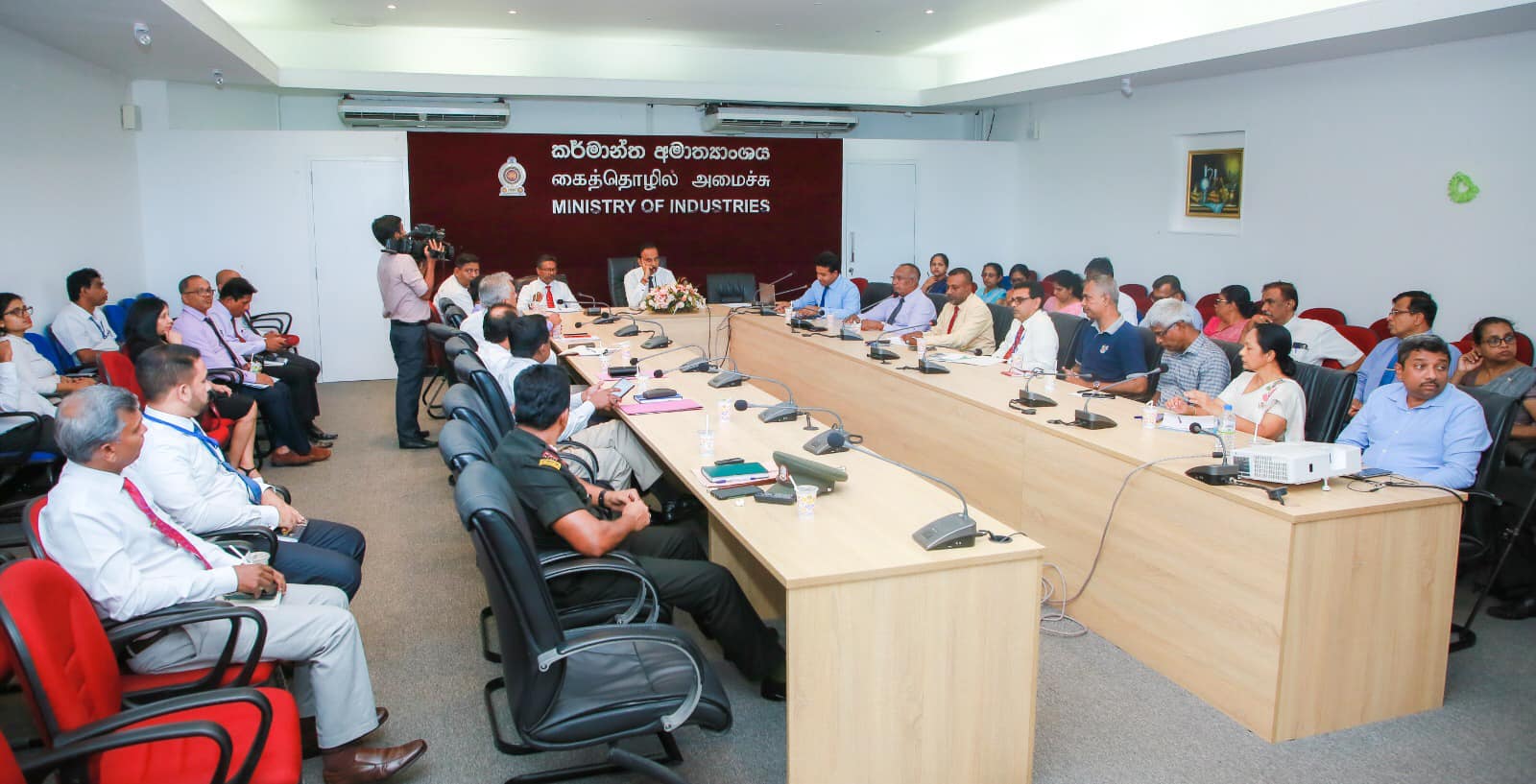
A special meeting of the stakeholders involved in the International Industry EXPO industry exhibition will be held.
-

“School Industry Entrepreneurship Circles”- National Medal Awarding Ceremony & Art Exhibition
-

Trained consultants have a prominent place in building an entrepreneurial culture in the country.
-

Meeting with Industry Stakeholders on International Industry Expo- 2024
-
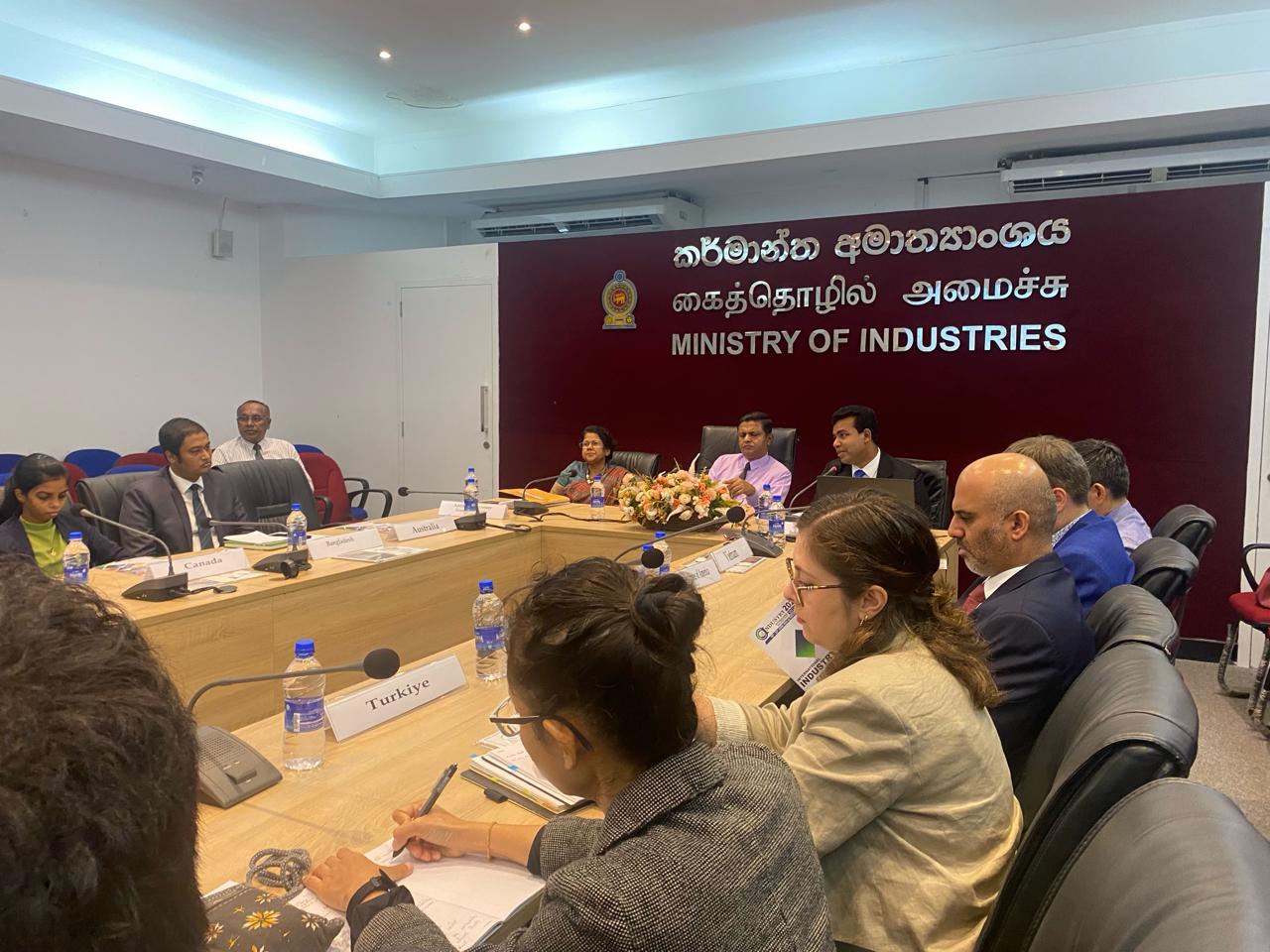
Meeting with Diplomatic Officials – International Industry Expo 2024
-

IDB successfully conducts the second Industry Clinic in Kurunegala….
-

බන්ධනාගාර දෙපාර්තමේන්තුව සහ කාර්මික සංවර්ධන මණ්ඩලය අතර අවබෝධතා ගිවිසුමක් අත්සන් කිරීම.
-

Innovation Arena 2024
-

Innovation Arena 2024
-

Innovation Arena 2024
-

Vehicle Parade – June 18
-

School Industry Entrepreneurship Circles National Programme
-
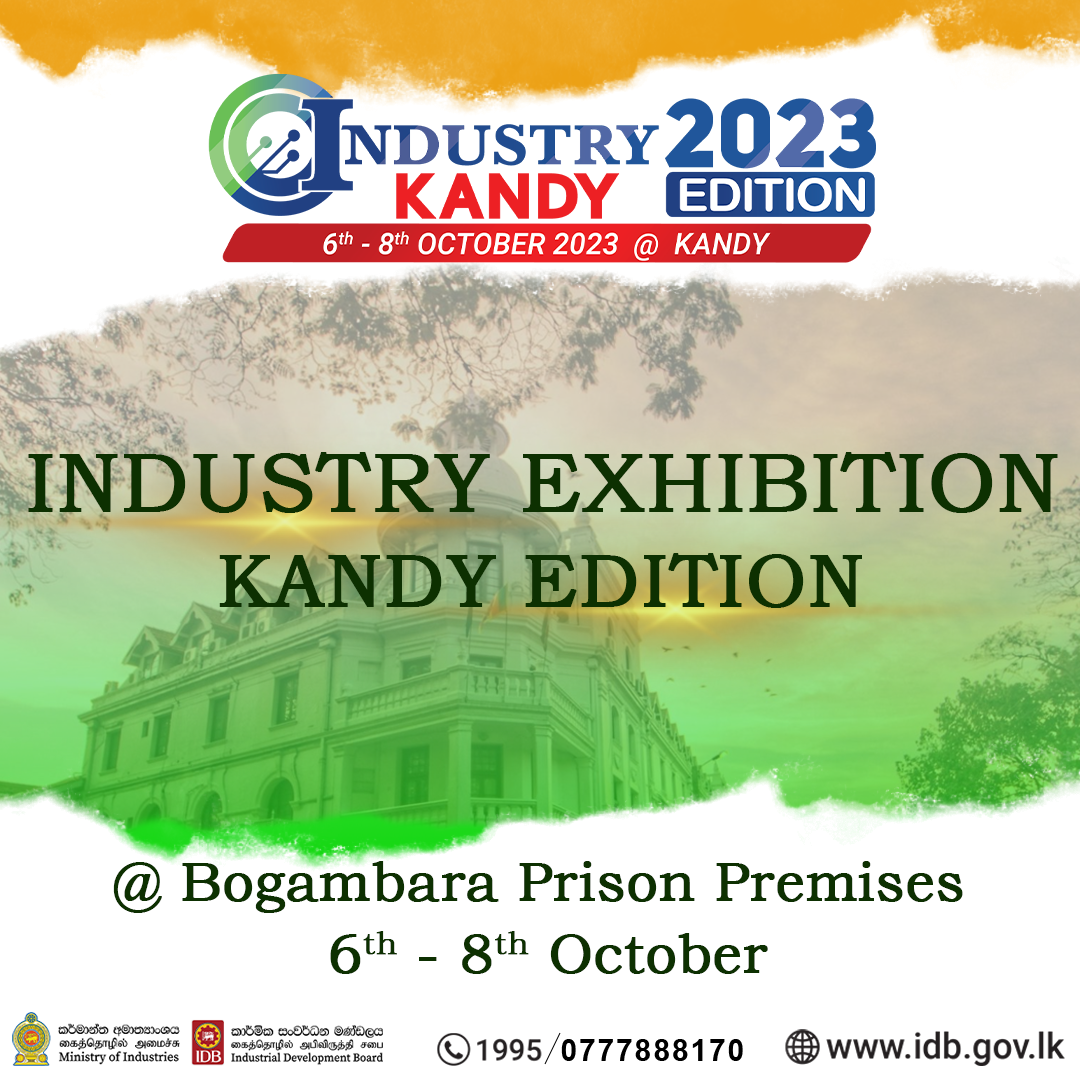
2023 Industrial Exhibition at Bogambara Ground in Kandy
-

A local traditional fashion show on September 27 at the Galle Face Hotel
-

National Rubber and Plastics Conference – 2023
ABOUT US
We provide best solutions to your Industry
The Industrial Development Board (IDB) is the premier state organization which comes under the Ministry of Industries. We are empowered by Industrial Development Act No.36 of 1969 and entrusted with the responsibility of developing of the Industrial Sector in Sri Lanka.
Package of Services :
Identification of business opportunities
Quality and productivity improvement
Project feasibility studies and reports
Management development and consultancy
Business Information and Developing linkages
Product development, promoting innovation and new technologies
Infrastructure facilities
Step by step guidance
towards entrepreneurship
Step 01
This is just the right content for a novice user like you. Got plenty of business thoughts storming inside the head and still could not align them up? Please click here and get onboard. Our knowledgebase will help you generate one of the competitive, long lasting and lucrative ideas.
Step 02
Now are you ready for a new adventure called entrepreneurship? Becoming your own boss! Bearing Risks! Enjoying rewards and to become a game changer! CLICK here and get onboard. Our tools will guide your business idea and make it sustainable.
Step 03
Is everything happening as you have planned? Even the best plans could have a flaw; you might be having some hard time with your enterprise. We know exactly what you need. CLICK here and get onboard to look what is inside for entrepreneurs like you. We will diagnose your problem and work with you to overcome.
Step 04
You have gained success but still before reaching the pinnacle better to have a final checkup. CLICK here and get onboard the tools will help you to have a better outcome.
What We Provide
EXPERT SERVICES
Opportunities and Challenges for Businesses and Employees
The Industrial Development Board (IDB) is a government agency that aims to promote and facilitate the development of industries in a country. It typically provides a range of services, including financial assistance, technical expertise, and other resources to support the growth of businesses in various sectors. The ultimate goal of the IDB is to boost the economy by creating employment opportunities, improving the standard of living, and promoting overall economic development.
Enhance your skills, get better
Training & Workshop
Based on your field of interest, your location and your affordability we have listed the most updated program content for you.
Island wide approach
We have 25 district offices organizing industry related training where you can attend at your convenience
Wide variety of workshops
All our programs are mainly categorized under 20 industry sectors and they are further listed into sub-sectors based on user preference i.e.: Food, Oil and fibre, Building Materials, Chemicals etc.
Constructed and well updated course content
Based on the constantly updating the knowledge base all our content is updated and amended accordingly.


Business Profile
Access to a bigger business community
Investor Pool
Make your comprehensive business proposals available here.
This enables entrepreneurs to present comprehensive business proposals to a group of investors who can review and invest in the proposals that align with their investment preferences and goals
Efficient review process
Increased visibility

79%
Increased Productivity
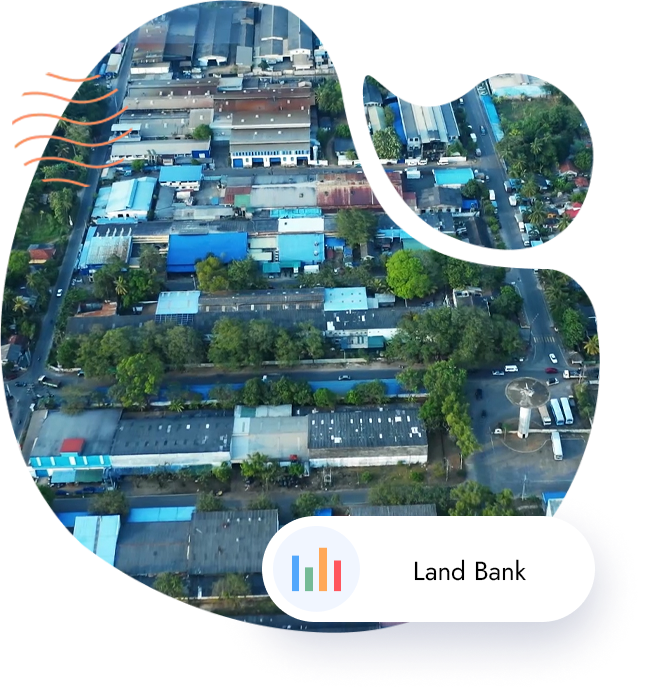
Land Bank
Are you in pursuit of land to set up your business? We have slots that exactly match your requirement where you could thrive and build your future. Sign In, fill up, and own land.
Access to prime locations
Land banks typically acquire land in strategic locations that are well-connected and offer easy access to transportation, markets, and other essential infrastructure. This means that by owning land through a land bank, you can benefit from being situated in a desirable location.
Affordable pricing
Land banks often offer land at affordable prices, especially in areas where land prices are typically high. This can make it easier for small businesses or entrepreneurs to acquire land and start their operations without incurring high costs.
Job Portal
Centralized platform
Easy to use
Up-to-date information
up-to-date information on job openings, and the admin can keep the jobs catalog updated all the time. Ensures that members have access to the latest job information, making it easier for them to find and apply for suitable job openings.

79%
Increased Productivity
CONTACT US
Let’s Grow Your Business Together

CONNECT TOGETHER








